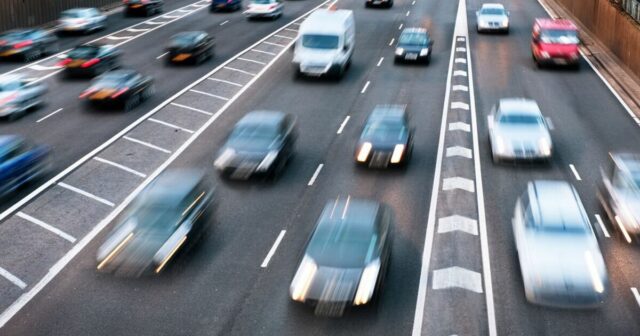Some petrol and diesel owners could pay £140 more in Vehicle Excise Duty (VED) as car tax rates are set to increase in weeks.
VED rates rise every year in line with Retail Price Index (RPI) inflation with another increase scheduled for April 1, 2024.
The roughly six percent increase will see bills rise across the board but certain road users are set to be more affected, according to data from Pete Barden.
Owners of brand-new vehicles often face the highest VED fees due to the first-year supplement and these vehicles will record the biggest increase this time around.
Those buying new highly polluting petrol and diesel models emitting over 255 g/km of CO2 will pay £2,745 in the vehicle’s first year on the road.
This is up £140 from the £2,605 fee currency charged to motorists securing new vehicles. Those emitting between 226 and 255 g/km are also heavily affected with costs up from £2,220 to £2,340.
Fees for slightly cleaner cars emitting between 191 and 225 g/km are also up by just under £100 to stand at £1,650 in year one.
Charges are up across almost all brackets but it’s not just new car buyers who will feel the sting.
Standard rate fees for cars registered after April 2017 will increase by £10 per annum to sit at £190.
Older vehicles registered after 2001 are also impacted with slight rises across almost all categories.
However, those emitting over 255 g/km of CO2 are again affected the most with fees jumping by £40 to £735 a year.
Cars registered before March 2001 will also be targeted with another slight increase in charges.
Motorists with an engine below 1,549cc will pay £210 per year compared to £200 under the current rules. Those with engines above 1,549cc will also pay more with fees rising from £325 per year to £345.
HM Revenue and Customs says the increase is simply a “standard uprating” of charges.
The group claimed VED fees would remain ‘“unchanged in real terms” for owners but accepted individuals would still be affected by the update.
They added: “Increasing VED rates by RPI in tax year 2024 to 2025 will ensure that VED receipts are maintained in real terms and that motorists make a fair contribution to the public finances.”





